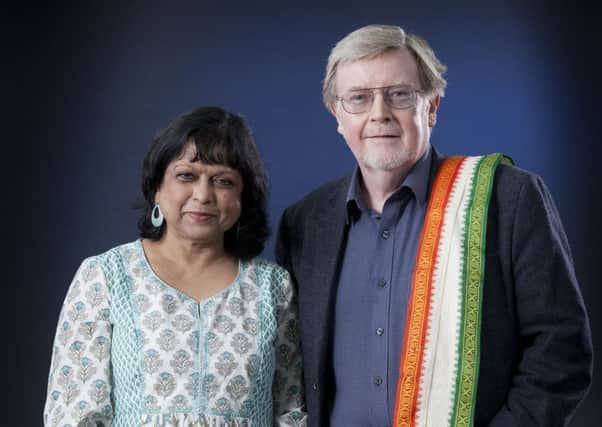Poets launch anthology of Scottish and South Asian Poetry


To watch Payal Debroy perform classical Indian dance to a medley of songs which included Scots, Gaelic, Hindi and Bengali was to watch several cultures come together in a way which was both inventive and celebratory.
Bashabi Fraser, editor of the anthology along with Alan Riach, described the book as a “confluence”, a meeting point, adding that since she arrived in Edinburgh some years ago as a student, she has not stopped meeting Scots with Indian connections.
Advertisement
Hide AdAdvertisement
Hide AdPublished to mark the 70th anniversary of Indian independence and partition, the book – its title comes from a term for an Indian meal of small dishes – celebrates two centuries of the well-trodden path between Scotland and the Indian subcontinent: Scots who travelled to India in the Army, or as part of the workforce of empire (more, proportionately, than from any other part of the British Isles), and South Asians who have made their homes in Scotland.
An impressive force of nine poets, including the two editors, mustered to read their work, and demonstrate the diverse meeting points of the two cultures, including Alan Spence, with a marvellous invocation of the elephant-headed Hindu god, Ganesh; Christine de Luca, comparing the burning of buffalo dung as fuel in Rajasthan with the burning of peat in Shetland; and Indian-born Shampa Ray writing about her fascination with the Scottish landscape in Red Moss.
This event came hot on the heels of another colourful celebration, when the artist Leon Morrocco was interviewed by Liz Lochhead on the publication of a monograph about his work, A Painter’s Journey. The two first met when Morrocco, a young teacher at Glasgow School of Art, was called upon to advise Lochhead, then a final-year student, struggling to decide between painting and poetry. The event was a celebration of their friendship rather than an in-depth discussion of Morrocco’s life and work, which may have disappointed some, but also served to illustrate the difficulties of putting painting into words.
On Tuesday evening, in one of the hotly anticipated events of the Book Festival, Jeremy Paxman was interviewed by Ruth Wishart, who took on the challenge of questioning one of television’s most formidable questioners with typical wit and equanimity.
Paxman, on the other hand, cut a somewhat curmudgeonly figure, angled away from Wishart and tossing brief answers over his right shoulder. It was less an interview than “a piece of theatre” – the words he uses in his memoir, A Life in Questions, to describe his infamous demolition of junior Treasury minister Chloe Smith on Newsnight. Ironically, with the tables turned, he avoided answering a number of questions, on one occasion accusing Wishart of “characteristically misrepresenting” him.
We did learn things, however. We learned how much he hates the lobby system in Parliament and his thoughts on Theresa May’s handling of her shotgun election (“an absolute horlicks”).
We learned why the five-point penalty for incorrect interruption on University Challenge really is essential, and what he thinks about the gender pay gap at the BBC (the women “should have negotiated better deals”). And we learned that there is, after all, a more human side to Paxman, one which is reluctant to speak of his achievements, and who experiences self-doubt: “I do think, ‘Who are you, you jumped up prat, to do this?’”
Advertisement
Hide AdAdvertisement
Hide AdAnd one which is resigned to accepting the label history has handed to him: “Most of us can only accommodate one idea of a human being, there is no room for complexity … I’ll only ever be the bloke who asks the same question 18 times and that’s how it goes. One has to live with that.”